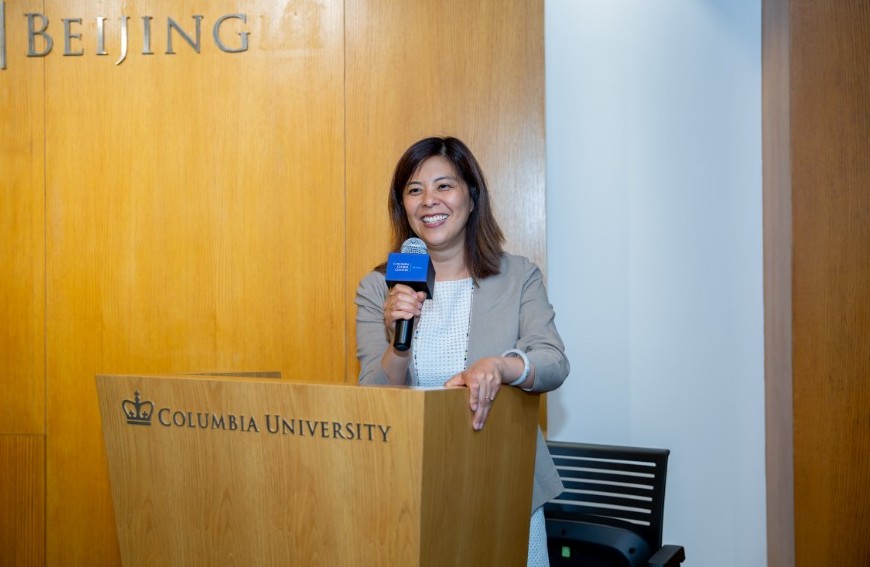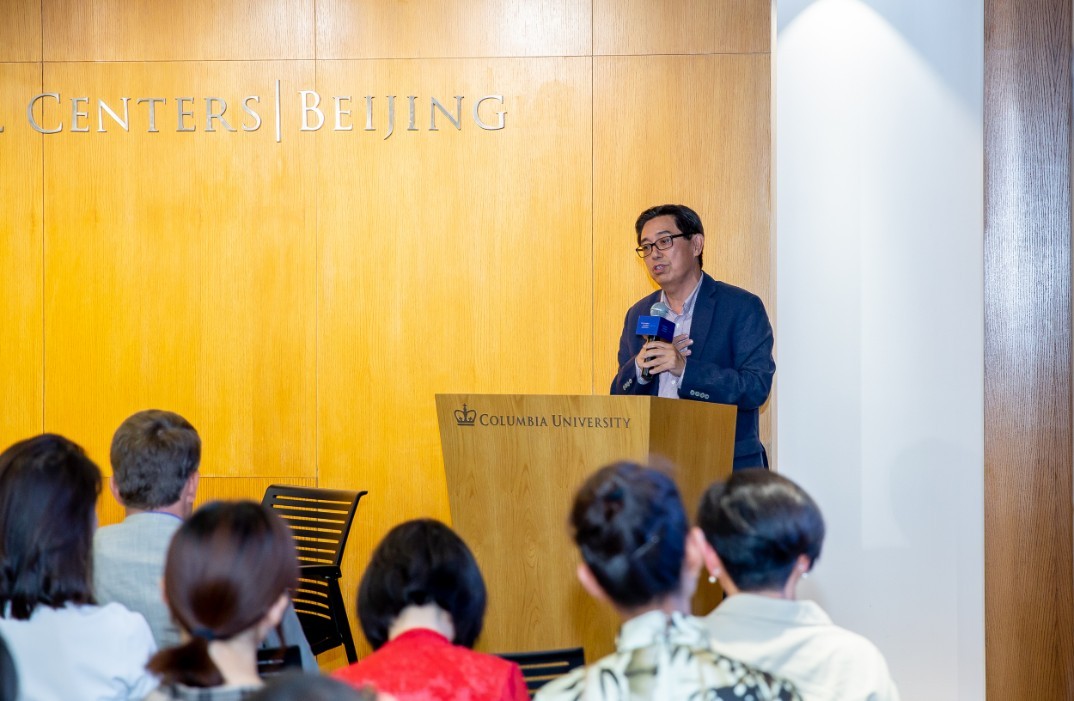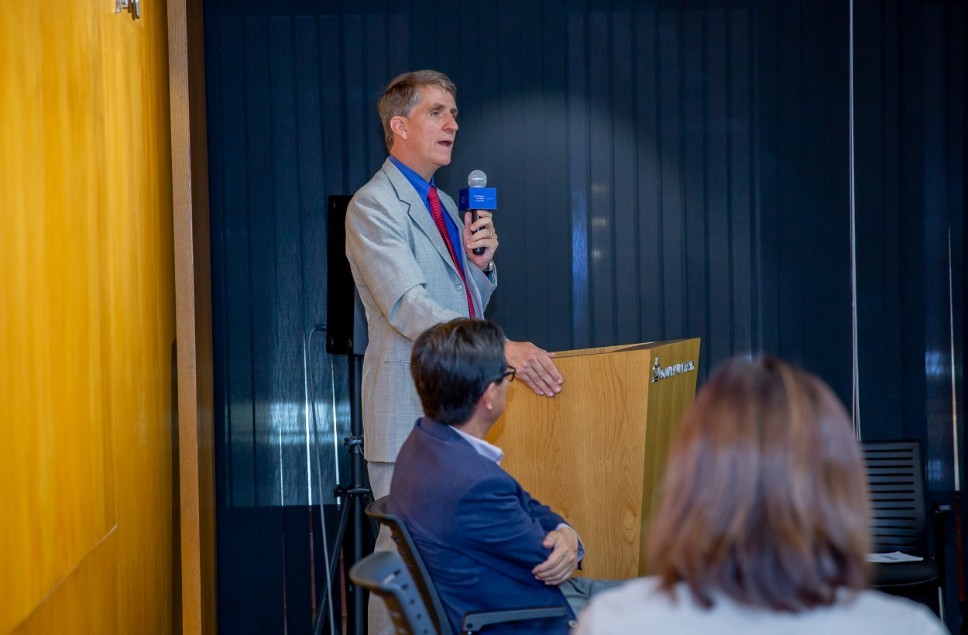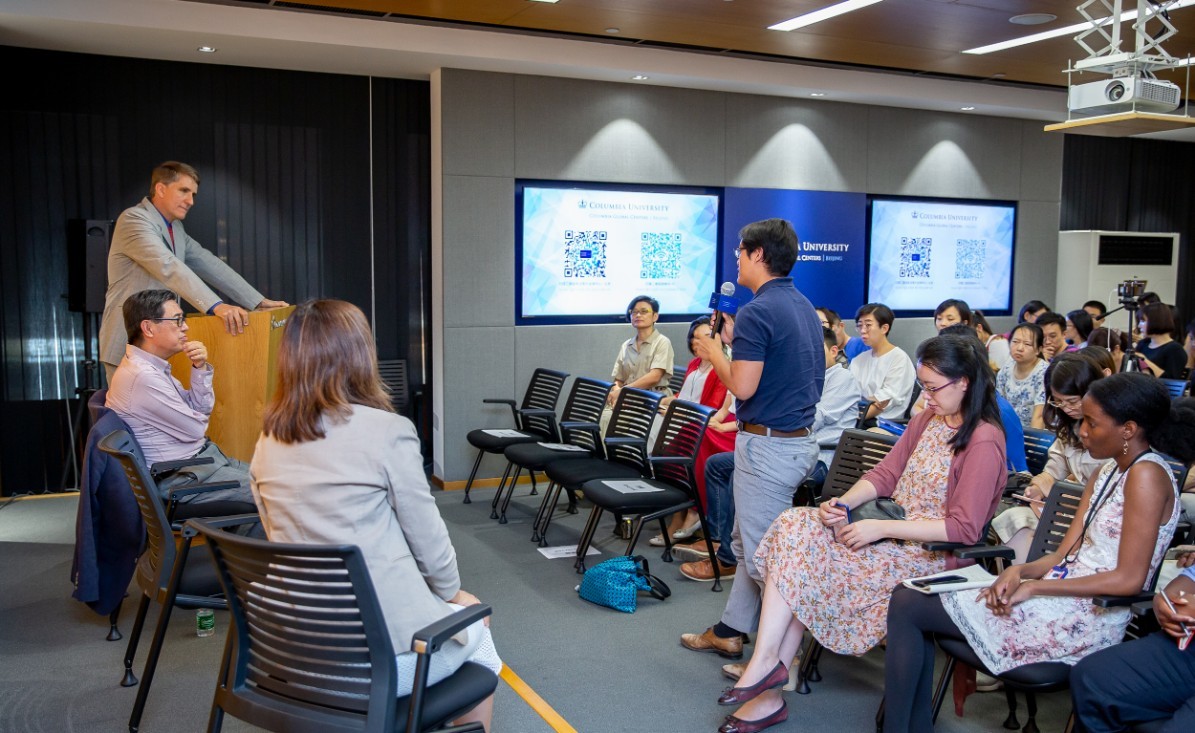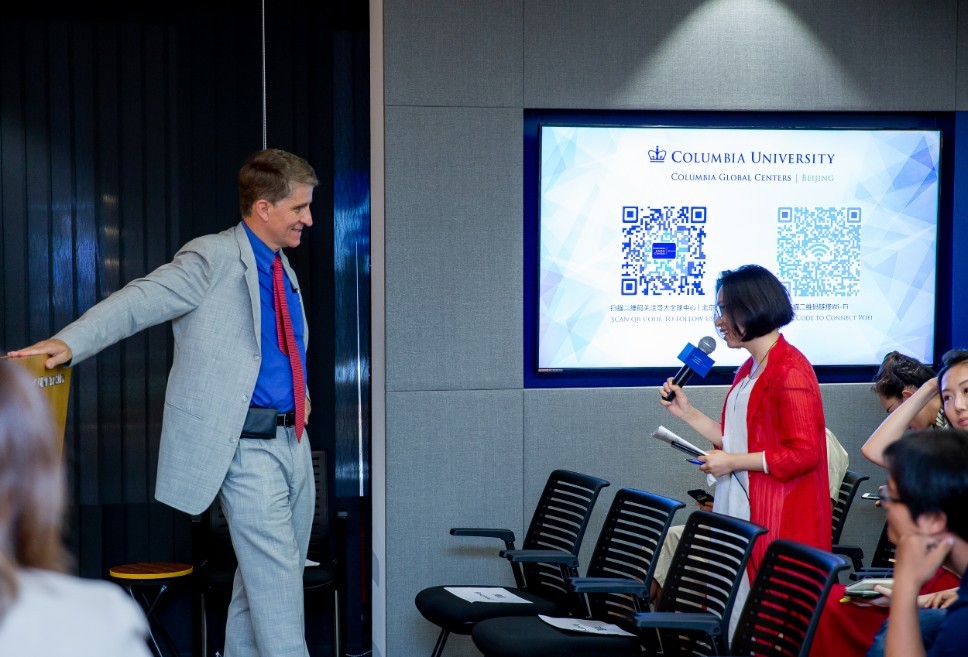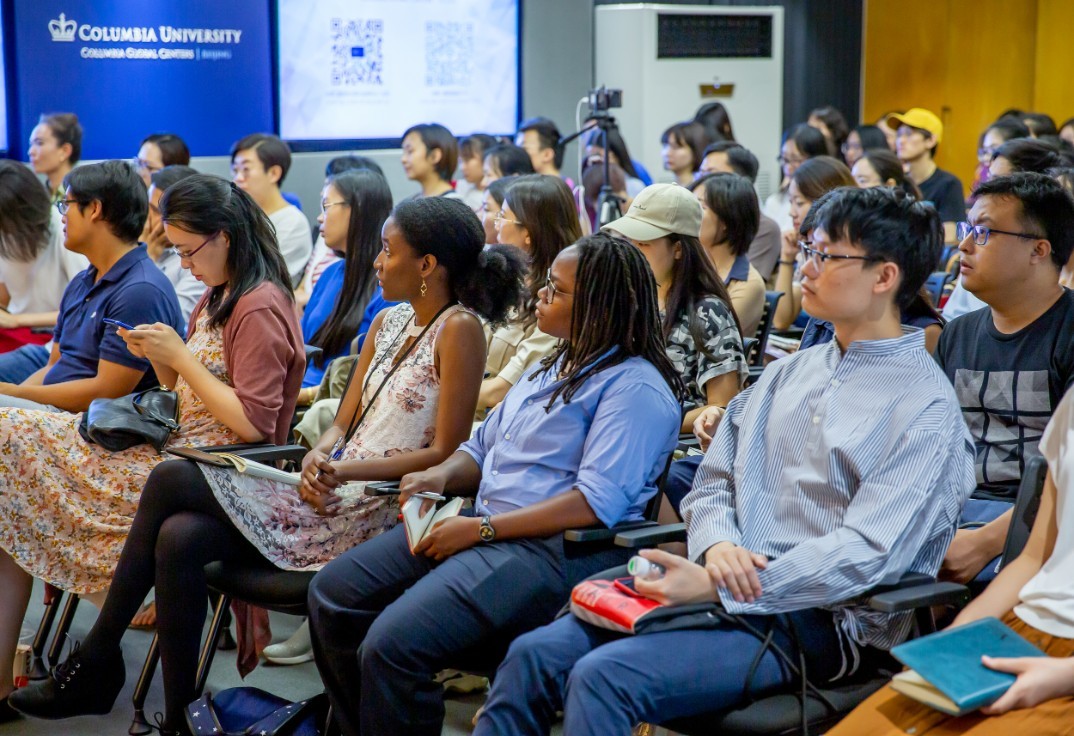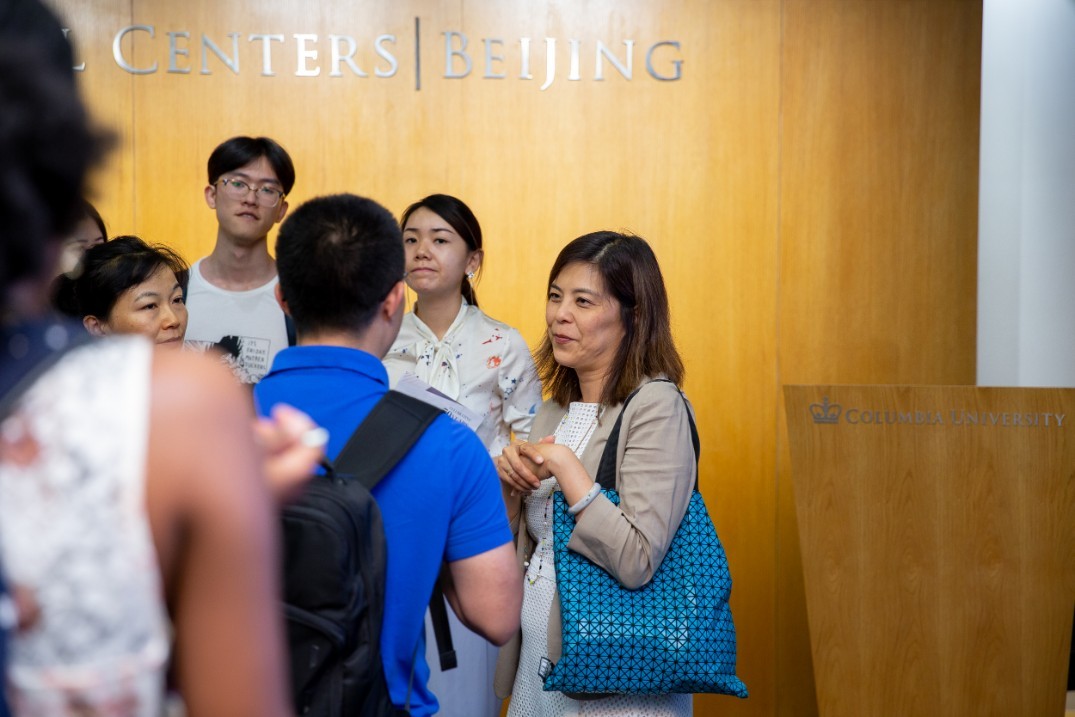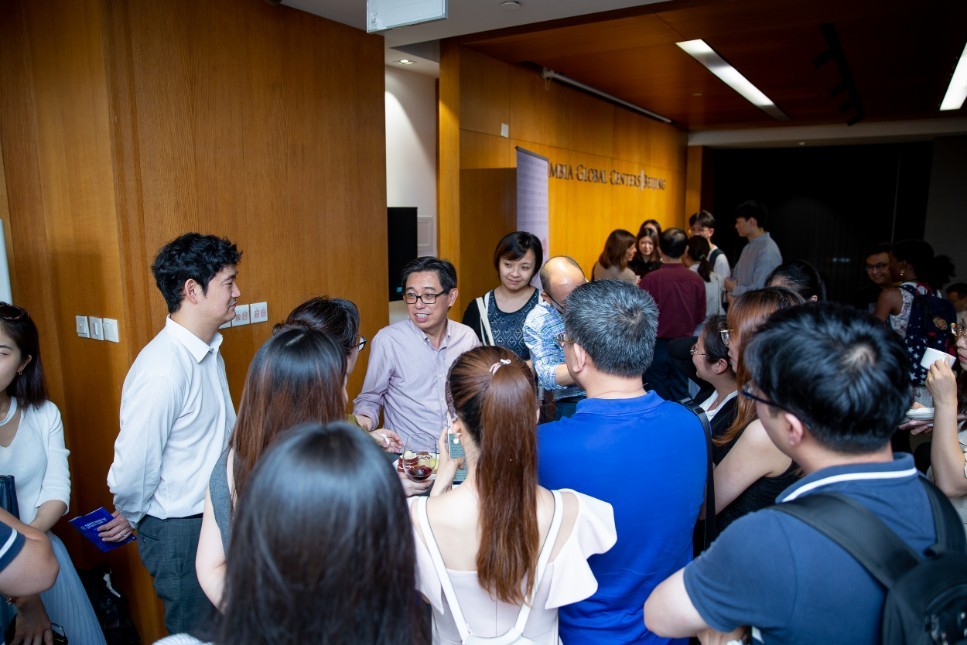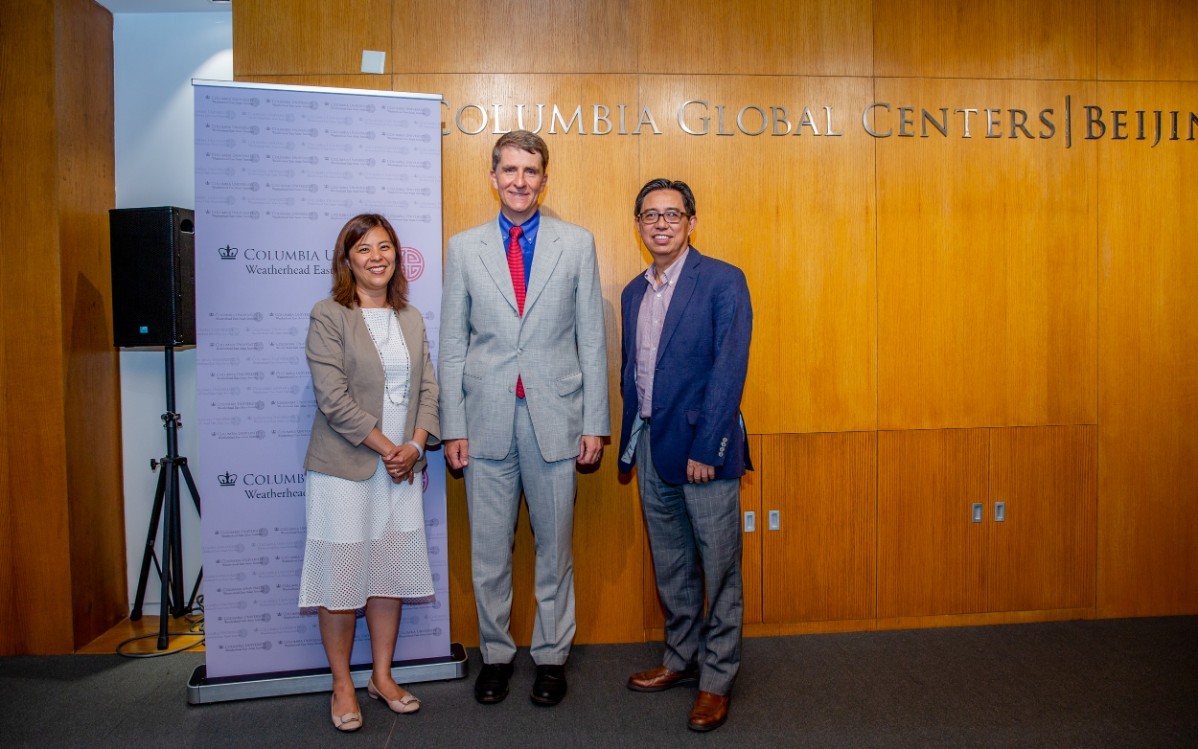Keith Bradsher of The New York Times joins Professor Eugenia Lean and Professor Xiaobo LÜ for the Reporting Asia Panel Discussion, in celebration of the WEAI’s 70th anniversary
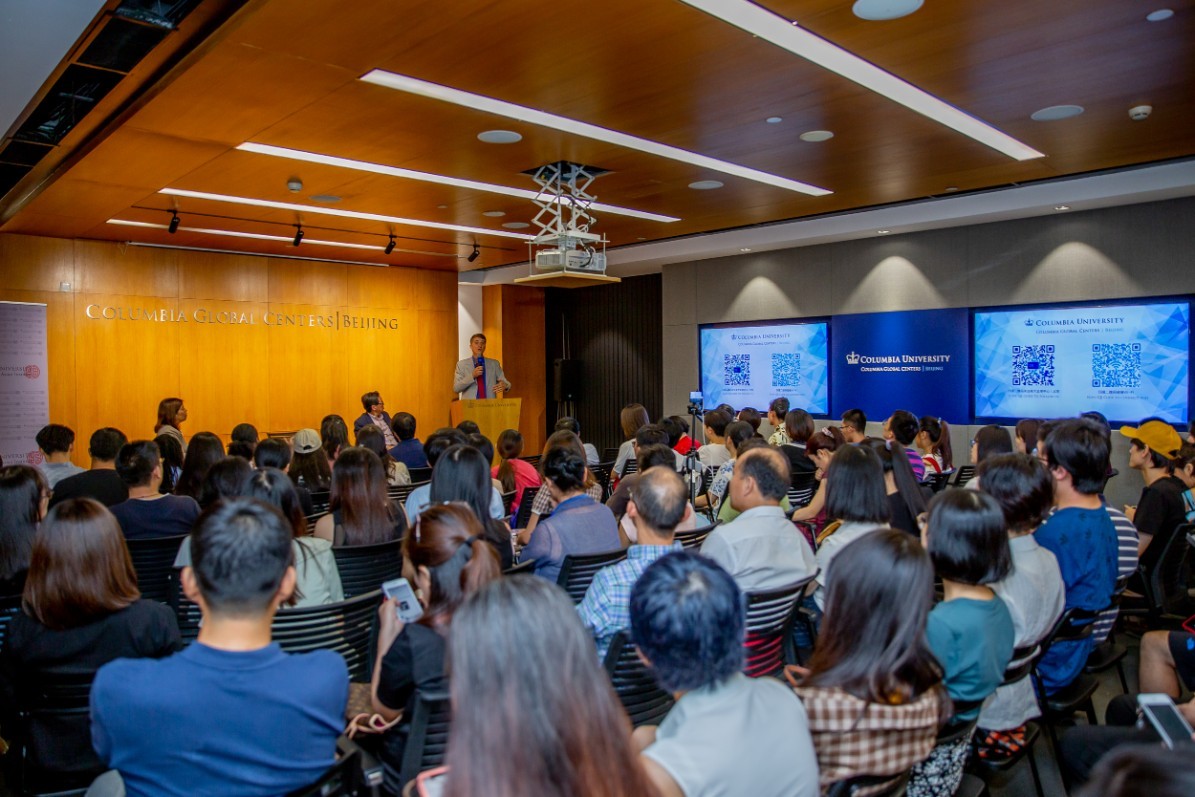
Asia is in the news. Headlines are sometimes dominated by the Sino-US trade wars or the retaliatory tariff of India on US goods. Yet, even while reasoned and nuanced reportage on Asia is urgently needed, it has become increasingly difficult to do so amid this dynamic and complicated world situation.
To discuss how to deliver responsible and trustworthy news from Asia, Keith Bradsher, Pulitzer Prize-winning Shanghai bureau chief for The New York Times and the company's senior writer for Asia economics and business, joined Professor Eugenia Lean, Director of the Weatherhead East Asian Institute, and Professor Xiaobo LÜ, Ann Whitney Olin Professor of Political Science at Barnard College, for a panel discussion on Reporting Asia at the Columbia Global Centers | Beijing on July 13.
This event is part of the 2019 Columbia Beijing Summer East Asian Series, honoring the Institute’s founding seven decades ago. The panel discussion was followed by a reception for the professional fellows, visiting scholars, and MARSEA graduates.
“For the past 70 years, we have been pushing the boundaries of East Asian regional studies, branching out from an dearly focus on China and Japan, to encompass work on Korea, Inner Asia, and most recently Southeast Asia,” said Professor Lean. “It is particularly meaningful for us that we are able to have today’s event in China and thus, reconnect with so many of our alumni.”
The panel discussion addressed several issues in Asia that capture attentions worldwide, including the India-U.S. trade tension, climate change, the impact of social media, education, Trump’s policies and its effect on Asian countries, as well as China’s economics and its trade war with the U.S.
Since the early 21st century, Bradsher has been witnessing the great success of China’s economic model. He believes China’s dilemma now is to achieve economic growth while to confront trade disputes and inevitable doubts from other countries. Although many take the Sino-U.S. trade war as a serious conflict, Bradsher continued to expound his views, seeing the competition between two countries could not stop China’s economic growth as its growth depends more on the real estate and automobile sectors than trade.
More than 130 people joined the discussion, including many current students, alumni, and parents of the Columbia community. For the first time, the event also had a group of Shanghai alumni participating and engaging in a live Q&A session via the Center’s live stream platform.
As Asia is on the rise, understanding community and culture of Asia in a global context has never been more pressing. As one of the regional hubs for knowledge exchange of the University, the Center looks forward to more initiatives and programs with the Weatherhead East Asian Institute to bring research and teaching about the region to the forefront and to contribute to new knowledge on global humanities.
